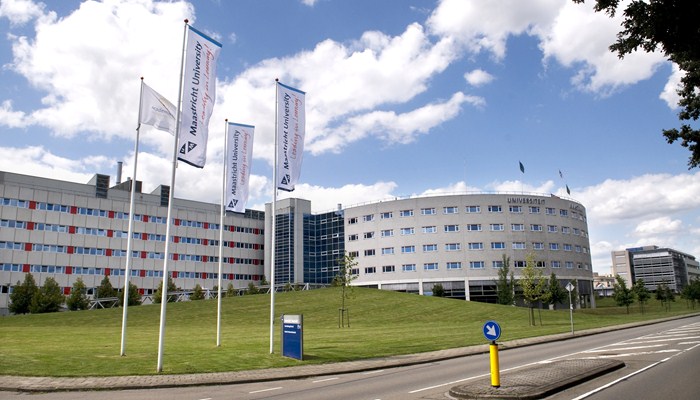Partnerships
In the field of research the Faculty of Health, Medicine en Life Sciences (FHML) cooperates closely with several national and international organisations. Two FHML schools participate in national research schools. Moreover, FHML is a valued partner in several National and European initiatives for research infrastructure.
Also in the field of education FHML collaborates on an international level, e.g. with the World Health Organization (WHO).

Participation in National and International Roadmap Initiatives
National Roadmap for Large-Scale Research Facilities
The National Roadmap for Large-Scale Research Facilities programme encourages the establishment or improvement of large research facilities with which the Netherlands can assume an important position internationally. Large-scale research infrastructure is playing an increasingly important role as an essential condition for internationally groundbreaking research in essentially all fields of science. MRUM, the Metabolic Research Unit Maastricht, is part of the National Roadmap. It provides the opportunity to conduct research on the metabolism of the human body as a whole or of organs and tissues in a closely controlled environment.
Furthermore, Maastricht UMC+ /FHML participates in several (clusters) of Large-Scale Research facilities:
- Cluster BBMRI, Biobanking and Biomolecular resources Research Infrastructure;
- Cluster ELIXIR-NL, a data infrastructure for the life sciences which acts as a national focal point in the European network ELIXIR;
- ISBE, Infrastructure Systems Biology Europe, provides researchers in the life sciences with the expertise and the tools to integrate different types of data into computer models;
- Cluster MRI and Cognition provides researchers and clinicians with data about the structure (anatomy), the functioning (physiology) and the biochemical processes (metabolism) in the brain and other parts of the body;
- Cluster NEMI, Netherlands Electron Microscopy Infrastructure, provides researchers with an opportunity to actually see how individual atoms and molecules behave and organise themselves in biological and non-biological materials;
- Cluster NL-BioImaging AM, BioImaging Advanced Microscopy, develops advanced microscopic techniques to directly observe biological processes in action in cells, tissues and organisms. Moreover, the consortium makes these techniques accessible to other scientists.
BBMRI, ELIXER-NL, MRI and Cognition and NEMI are part of Health-RI https://www.health-ri.nl/health-ri, and various European Research infrastructures such as ESFRI, EATRIS and EuroBioImaging.
Parelsnoer Clinical Biobanks
The Maastricht University Medical Centre participates in Parelsnoer Clinical Biobanks. Parelsnoer was established by the Netherlands Federation of University Medical Centres (NFU), a unique partnership between the eight university medical centres (teaching hospitals) in the Netherlands. As from 2020 Parelsnoer is part of Health-RI.
The Parelsnoer Clinical Biobanks host clinical data, human biomaterial and/or images of carefully documented patients suffering from 19 closely defined clinical conditions, ranging from inflammatory, cardiovascular and neurological conditions, malignancies to rare disorders. These are collected and stored locally in the UMCs in a uniform manner. In certain cases, data are collected in collaboration with general hospitals. Together, the data collections form a federated infrastructure, a large cohort enabling broader scientific research. Parelsnoer offers researchers an infrastructure and and standard procedures for the establishment, expansion and optimisation of clinical biobanks for scientific research. It hereby ensures that scientific research is connected with high quality health care in a natural manner, which enables easy and reliable patient research and supports the development of scientific knowledge and innovative methods of treatment to improve health care or even prevent the disease in the future. To ensure patient privacy clinical data is encrypted.
For more information visit the Parelsnoer website (in Dutch)
Contact Parelsnoer
Coordinator Parelsnoer
Dr. Dorine Collijn
dorine.collijn@maastrichtuniversity.nl
Maastricht UMC+ in India
In 2008 Maastricht UMC+ started to explore the possibilities for research collaboration with Indian institutes. The importance of cooperation with Indian institutes in the field of research for Maastricht UMC+ is twofold. First of all, India is a source of talent. Secondly, the enormous population offers opportunities to perform clinical and population based research that in the Netherlands are only possible with much effort and patience. Since the main disease research areas of Maastricht UMC+ are also important for India, cooperation often leads to a win-win situation: combination of our knowledge and technological infrastructure with the Indian population and research talent helps us as well as our Indian partners.
visit the Maastricht UMC+ in India website
